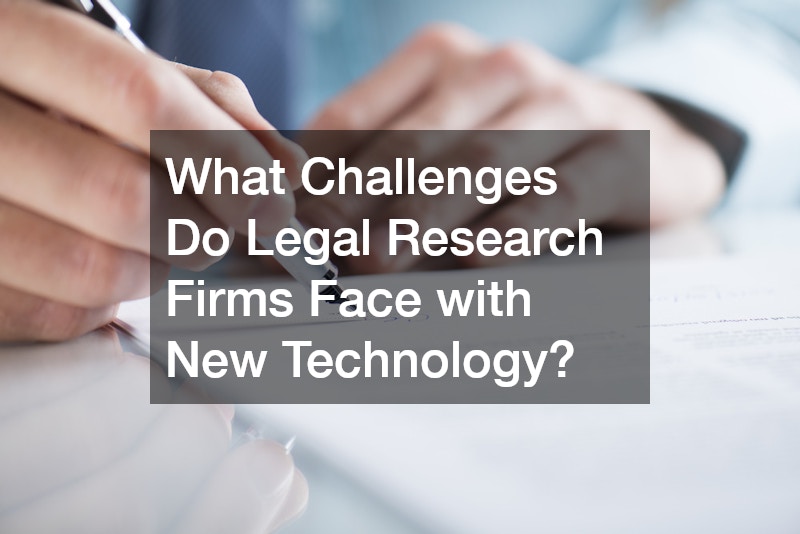
In recent years, technological advancements have revolutionized various industries, including legal research. These changes have significantly impacted top legal research firms, bolstering their efficiency and accuracy.
What New Technologies Are Being Adopted by Legal Research Firms?
Artificial Intelligence and Machine Learning
Artificial intelligence (AI) and machine learning have become integral in the evolution of legal research processes. They enable firms to analyze large volumes of data with unparalleled speed and precision.
By using AI, legal professionals can predict legal trends and outcomes with greater accuracy. This predictive power aids in crafting more effective legal strategies.
Moreover, AI minimizes human errors, ensuring more reliable results in research and case analysis. This has led to a higher level of trust and client satisfaction.
Big Data and Analytics
Big data technologies allow legal firms to gather insightful information from vast datasets. Analytics play a pivotal role in transforming raw data into valuable insights for decision-making processes.
These advancements enhance resource management, allowing firms to allocate resources more efficiently. As a result, firms can offer more competitive rates and services.
Additionally, big data helps increase research accuracy by providing comprehensive views of legal precedents and potential client outcomes. This leads to more informed and strategic legal counsel.
How Is Automation Improving Efficiency in Legal Services?
Contract Review Automation
Automation has streamlined contract review processes, drastically reducing the time required for task completion. Advanced software tools can scan and identify key contract elements, highlighting potential risks.
This automation leads to more efficient workflows, freeing up valuable human resources for more complex tasks. As automation simplifies contract review, legal professionals can maintain focus on providing strategic advice.
Moreover, automated contract review reduces the likelihood of overlooking critical details, enhancing the overall quality of legal services. This boosts client confidence in the firm’s capabilities.
Case Law Research Automation
Tools helping with automated case law research have increased the speed and accuracy of legal analyses. These technologies can sift through vast legal databases to find relevant judicial opinions and precedents.
The automation minimizes the manual labor traditionally associated with legal research, thereby reducing associated costs. Clients benefit from quicker turnaround times on case assessments and strategic recommendations.
Furthermore, automated research provides a comprehensive overview of legal landscapes, enabling lawyers to craft more robust case strategies. This positions firms as leaders in innovative legal solutions.
What Role Does Blockchain Play in Legal Research Firms?
Document Security and Verification
Blockchain technology offers unparalleled security features, vital for handling sensitive legal documents. Its decentralized ledger system ensures document integrity and authenticity.
With blockchain, legal professionals can ensure tamper-proof document storage and verification. This adds an extra layer of trust and reliability to legal transactions and filings.
By implementing blockchain, firms protect client information, aligning with stringent data privacy requirements. This protection cultivates long-term client relationships based on trust.
Smart Contracts Implementation
Legal industry innovations include the use of smart contracts, which automate and enforce contract terms through blockchain technology. These contracts ensure that all obligations are met before execution is completed.
Smart contracts reduce paperwork and minimize misunderstandings or disputes related to contract terms. This allows for more seamless and efficient legal transactions.
The implementation of smart contracts demonstrates a firm’s commitment to modernizing legal practices, offering clients cutting-edge solutions. This technologically advanced service holds a strong appeal for tech-savvy clients.
How Are Cloud Solutions Enhancing Legal Research Capabilities?
Data Accessibility and Storage
Cloud-based solutions have transformed how legal firms manage data, offering secure storage and ubiquitous access. This technology allows legal professionals to access vital documents and research from any location.
Enhanced data accessibility optimizes research capabilities, leading to quicker, more thorough analyses. Clients experience more dynamic and responsive legal services as a result.
Moreover, cloud storage solutions are scalable, allowing firms to expand their data management capabilities as needed. This ensures that they can accommodate future growth with ease.
Collaboration and Remote Work
Cloud-based collaboration tools have enabled seamless communication and remote work for legal teams. These tools allow professionals to work together regardless of geographic location.
Such flexibility fosters innovation and creativity, leading to more effective solutions for clients. Remote work capabilities also expand the talent pool, as firms can hire the best professionals without location constraints.
By embracing cloud solutions, legal firms enhance their adaptability in an ever-changing technology landscape. This forward-thinking approach positions them as leaders in the industry.
What Challenges Do Legal Research Firms Face with New Technology?
Data Privacy Concerns
While technology offers numerous advancements, it also presents new challenges in maintaining data privacy. Legal firms must navigate complex regulations to protect confidential client information.
The implementation of rigorous data protection measures is critical in mitigating privacy risks. Firms must stay proactive in adopting security technologies to safeguard sensitive data.
Unauthorized access to data could severely damage a firm’s reputation and client trust. Therefore, robust privacy strategies are essential in the modern legal landscape.
Adapting to Technological Changes
Adapting to rapid technological changes poses significant challenges for traditional legal research firms. Integrating new technologies requires a shift in established workflows and practices.
Firms may face resistance from staff accustomed to traditional methods, necessitating comprehensive training programs. These programs ensure that staff can effectively utilize new tools and technologies.
Successful adaptation requires a cultural shift towards innovation and continuous improvement. Forward-thinking leadership is crucial in guiding firms through technology-driven transformations.
.




